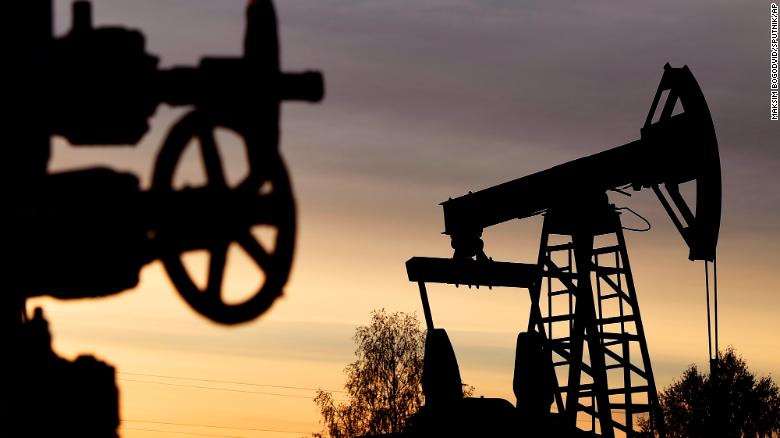Russia's economy is surprisingly tiny. Here's why it matters so much to you
- Get link
- X
- Other Apps

By Chris Isidore, CNN Business
Updated 4:04 PM ET, Sat February 26, 2022
New York (CNN Business) Russia isn't a superpower, at least not when it comes to the global economy.
Its gross domestic product puts it as only the 12th largest economy in the world according to the International Monetary Fund, about 25% smaller than Italy and more than 20% smaller than Canada, two countries with a fraction of its population.
So in the face of its invasion of Ukraine, why is the West reluctant to hit it with the full range of available economic sanctions as has been done with other rogue states?
The answer is simple: Oil and natural gas.
Russia is the world's largest exporter of natural gas and one of the largest exporters of oil. Some experts say cutting off those exports could drive up the prices of those commodities as much as 50% by some estimates, far more than far more modest single-digit spikes in prices experienced this past week.
"This is not North Korea. It's not Venezuela. It's not Iran," said Josh Lipsky, director of the GeoEconomics Center at the Atlantic Council, an international think tank. "Because of the energy [Russia] exports, it is systematically important and especially important to the world energy market."
The sanctions announced this week on Russia included carve outs for its energy industry. Lipsky argues if the West were to ban Russia's energy exports, it would drive up energy prices in a way which would benefit the Russian economy rather than hurt it. He said Russia would find other buyers for its energy, such as in China, and it would have more cash coming in, not less.
"Yes, a ban on energy exports would feel like an extreme measure," he said. "But would it actually have the desired effect?"
Right now European countries, which are far more dependent on Russian oil and natural gas, are not willing to take that step, said Gary Clyde Hufauer, senior fellow at the Peterson Institute of International Economics, an advocate of tougher measures against Russia's energy exports.
"Europe would have had to resort to price controls and rationing," he said. "That would be very unpopular. They weren't willing to pay the price."
Russia also has a rich supply of other natural resources, including lumber and many minerals. It is the second-largest producer of titanium, which is crucial for aircraft production, and Ukraine is the fifth-largest producer of the metal. Boeing could be in trouble if supplies are cut off, CEO Dave Calhoun conceded on a January earnings call.
"As long as the geopolitical situation stays tame, no problem. If it doesn't, we're protected for quite a while, but not forever," he said at the time.
But Russia is not a huge market for western nations' exports. The US exported only $6.4 billion in goods to Russia last year, according to Commerce Department data, which may sound like a lot but is actually less than one fifth of the exports going to tiny Belgium. (By comparison, US goods exported to China last year came to $151 billion.)
"Russia is incredibly unimportant in the global economy except for oil and gas," Jason Furman, who chaired the Council of Economic Advisers in the Obama administration, told The New York Times this week. "It's basically a big gas station."
And the nation which was the first to put both a satellite and a man in outer space has fallen far behind the rest of the world in technology.
Russia remains a leader in military technology and artificial intelligence, not to mention cryptocurrency, Hufauer said. But it depends on imports for most other forms of a technology, rather than internal production. The sanctions imposed on technology exports to Russia will hurt its economy.
The big question is how long will the sanctions against a pariah nation continue?
Lipsky and Hufauer both believe they will be in place for years, though not necessarily the many decades US sanctions against North Korea and Cuba have remained in place. And the longer sanctions are enforced, the more damage to the Russian economy,
"Sanctions can take a long time to bite," said Lipsky.
- Get link
- X
- Other Apps




















Comments
Post a Comment